Historical Knowledge Normal History Worksheets for Ages 5-7
6 filtered results
-
From - To
Discover our engaging Historical Knowledge Worksheets designed for children ages 5-7! These interactive printables offer young learners the opportunity to explore captivating historical themes through fun activities and illustrations. With a focus on essential concepts of history, kids will develop foundational skills in understanding past events, significant figures, and cultural milestones. Our worksheets promote critical thinking and encourage curiosity about the world. Perfect for teachers and parents alike, these resources provide an enjoyable way to foster a love for history while enhancing literacy and comprehension skills. Dive into the rich tapestry of history with our thoughtfully created worksheets today!


White House Worksheet


Benjamin Franklin Worksheet
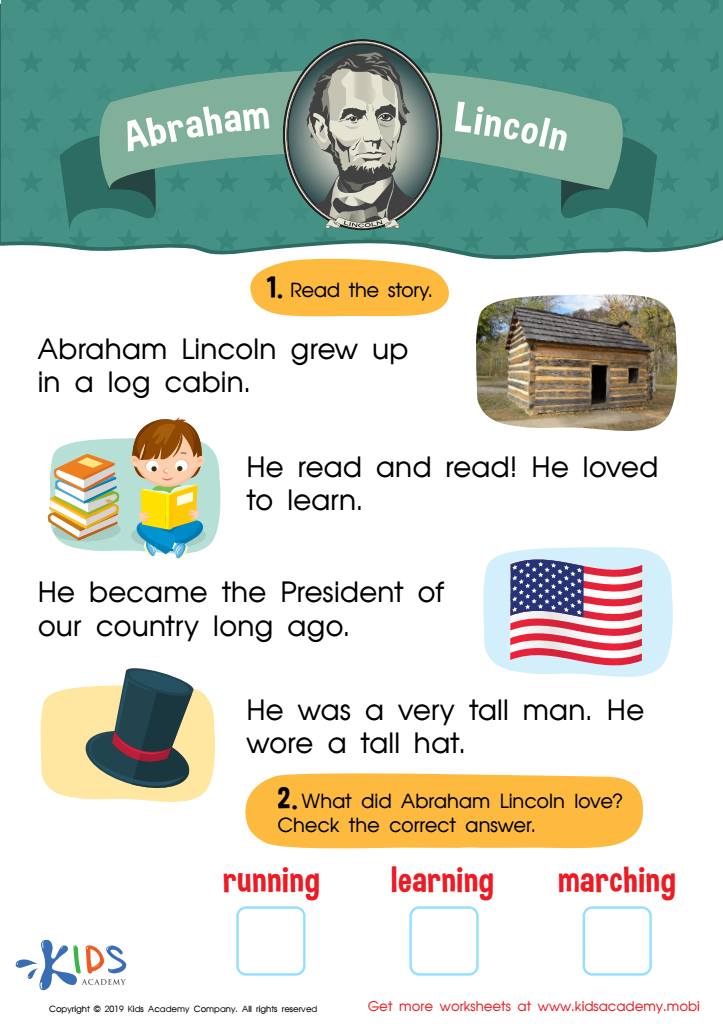

Abraham Lincoln Worksheet
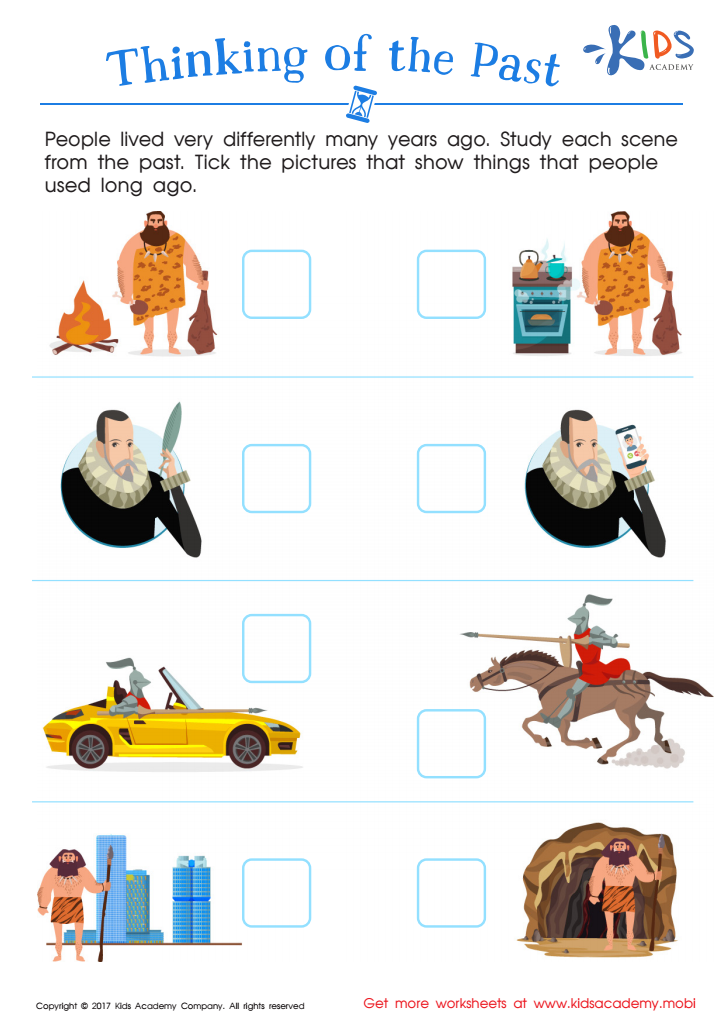

Thinking Past Printable
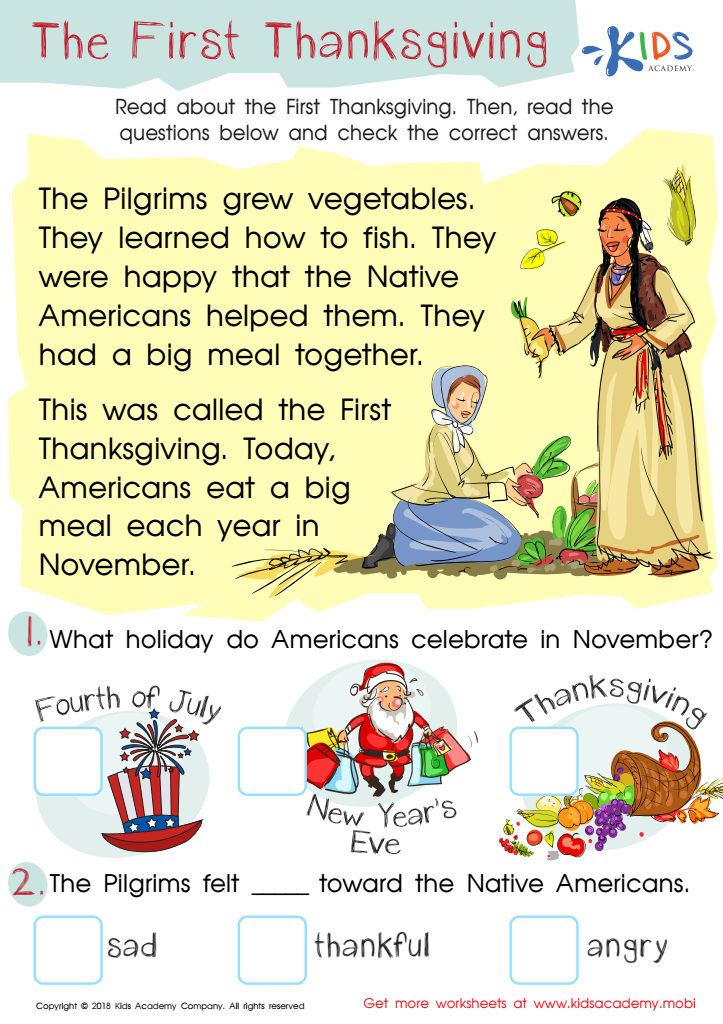

Assessment: First Thanksgiving Worksheet
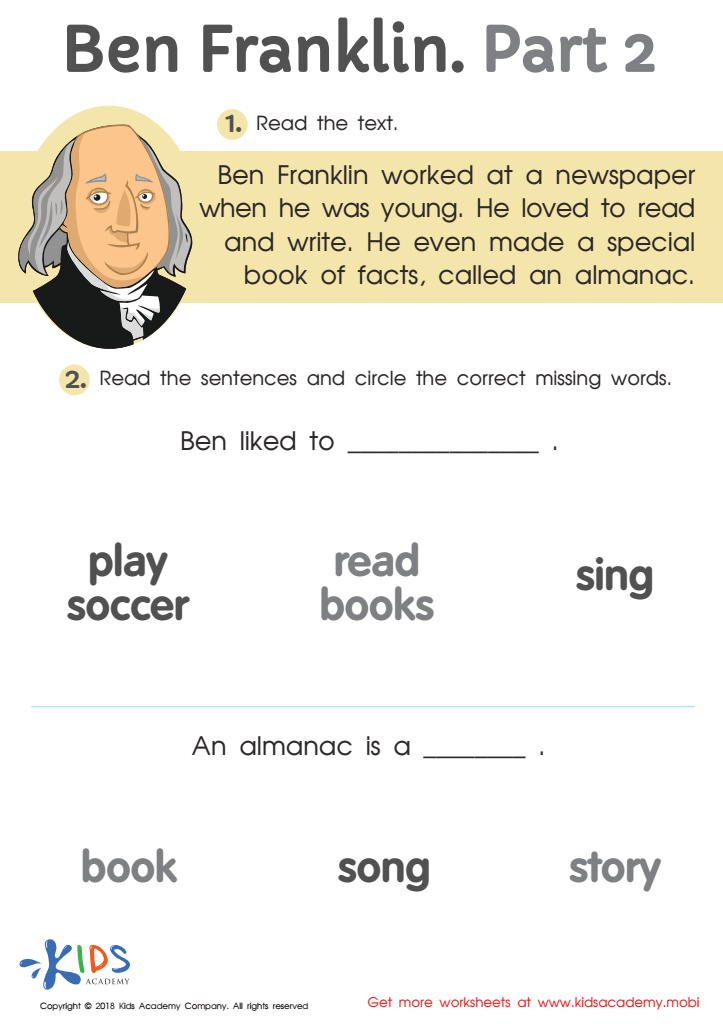

Ben Franklin Part 2 Worksheet
Parents and teachers should care about instilling historical knowledge in children ages 5-7 for several important reasons. First, it fosters critical thinking skills by encouraging young learners to ask questions about the past and understand the context of events. Learning history at this age helps children make connections to their own lives and experiences, promoting a sense of identity and belonging.
Understanding history also cultivates empathy, as children learn about diverse cultures, perspectives, and experiences. This helps them appreciate differences and develop respect for others. Moreover, early exposure to historical events and figures, such as significant leaders and innovations, inspires curiosity and motivation to learn about the world around them.
Incorporating history into early education can also enhance literacy and vocabulary development. Engaging stories of the past can spark imaginations, making learning enjoyable and memorable. Importantly, historical knowledge helps children grasp foundational concepts of human behavior, societal changes, and the importance of community. As these young learners grow, their historical understanding will equip them to be informed and conscientious citizens, capable of contributing positively to their communities and the broader world. Thus, nurturing historical knowledge is vital for their holistic development and future engagement with society.
 Assign to My Students
Assign to My Students





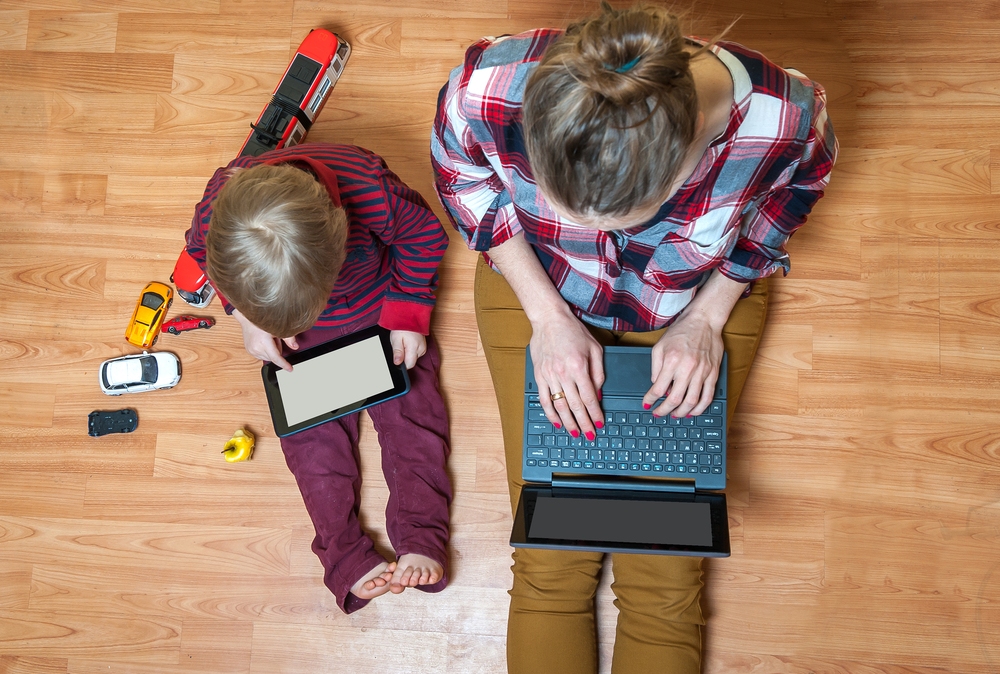
.jpg)









